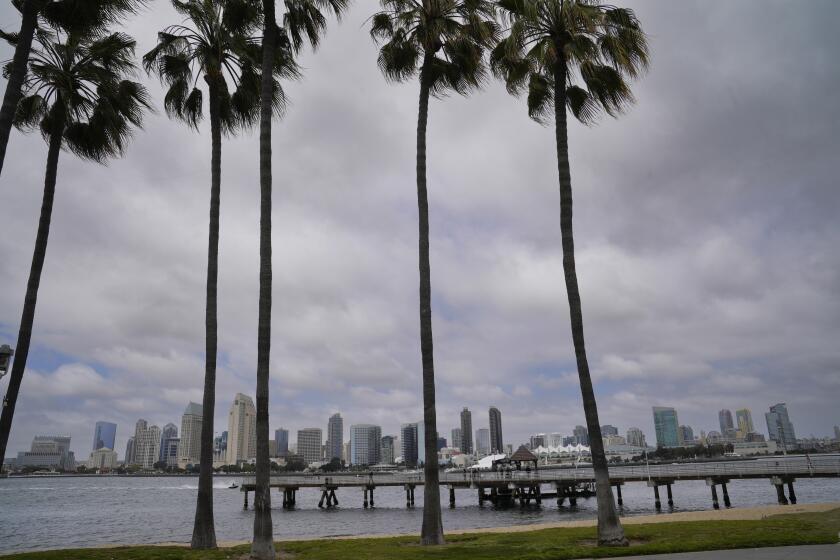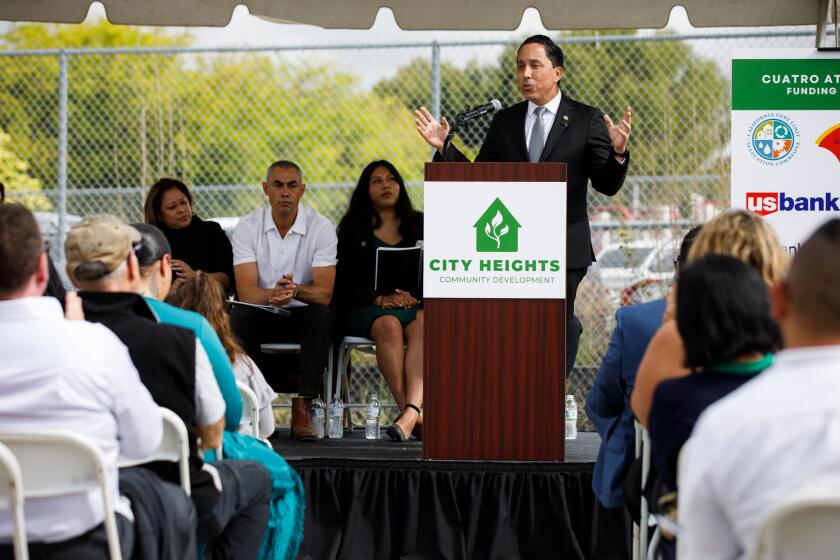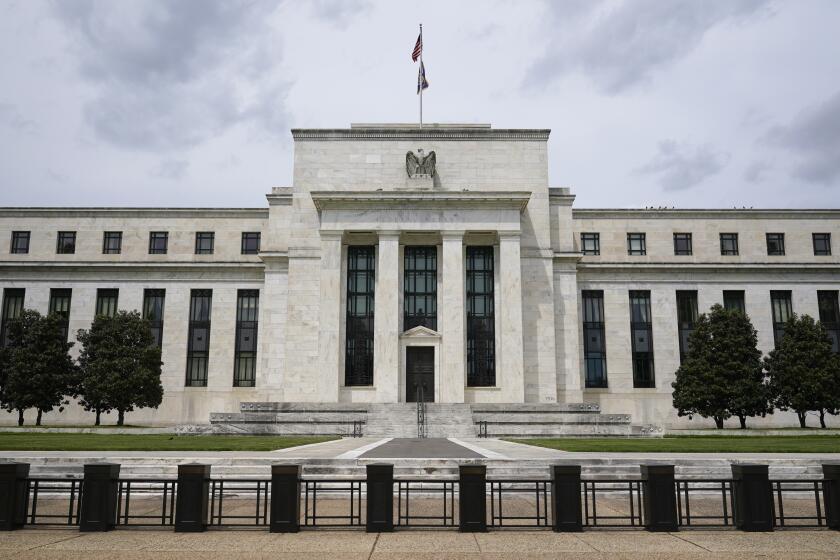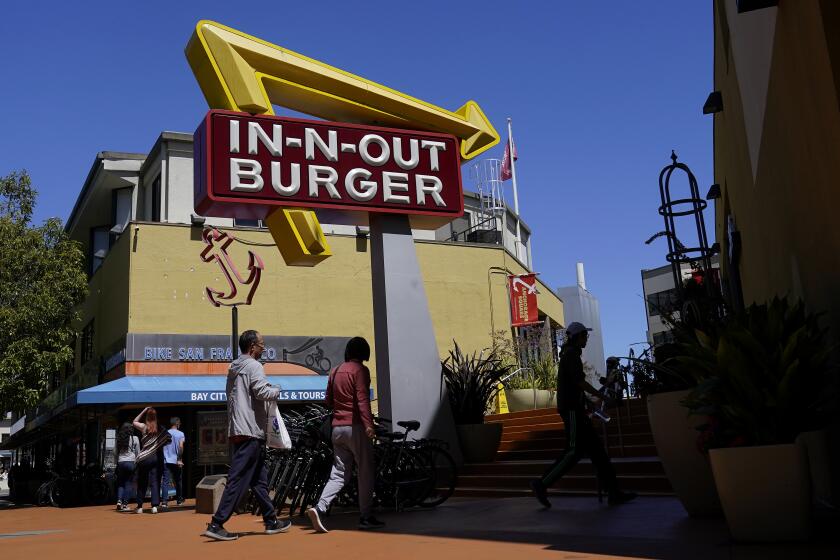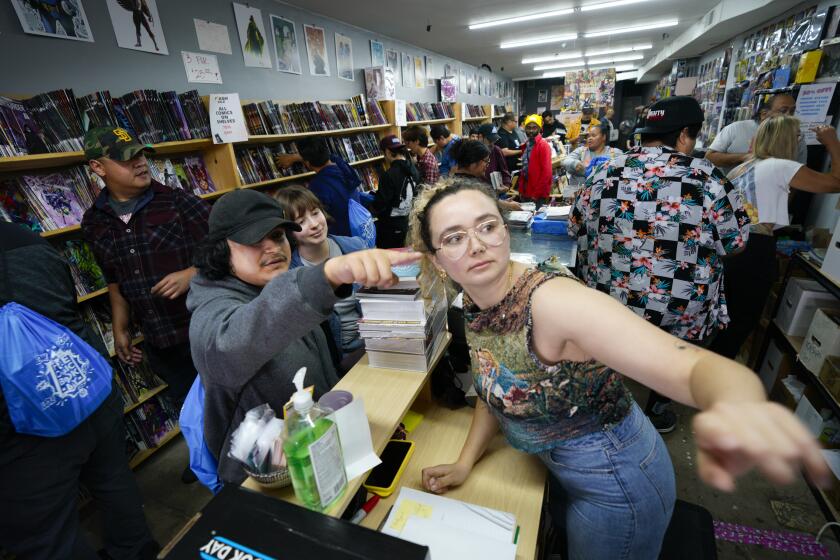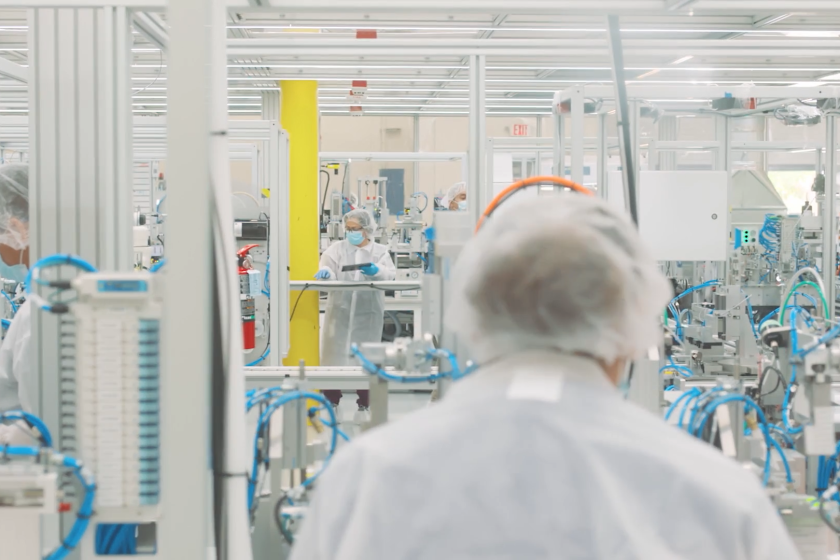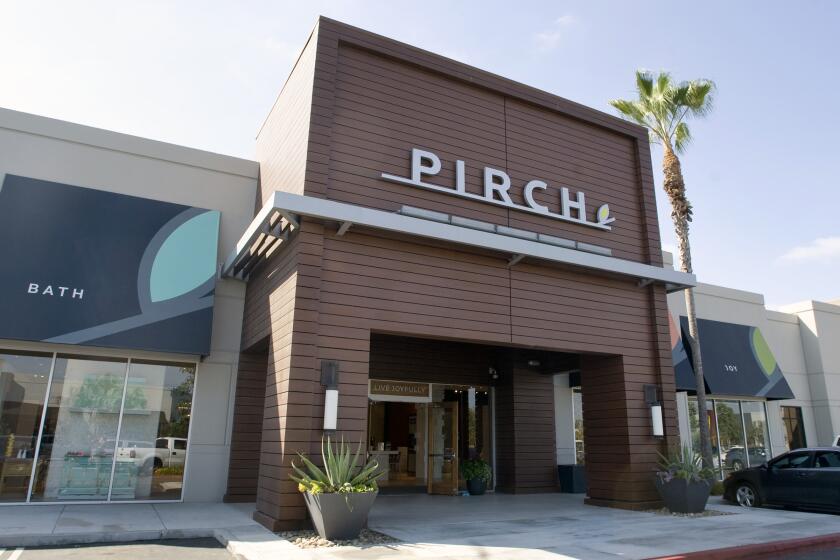Will Souplantation-style restaurants ever come back?
Souplantation announced recently that it was closing for good. It was founded in San Diego 42 years ago.
The CEO of its parent company, San Diego-based Garden Fresh, said it could no longer survive based on FDA’s recommendations to discontinue self-serve style restaurants in the wake of the COVID-19 pandemic.
Are Souplantation-style restaurants done for good?
Gary London, London Moeder Advisors
YES: The operational format of buffet restaurant models, e.g. all hands on the utensils, are not likely to withstand the pandemic. They will not be in exclusive company, however, as there will be many restaurant failures in light of new rules and expectations. Fewer tables and fewer servings at higher costs per serving is not a satiating recipe for success. The restaurant industry will be among the hardest hit and the last to recover.
Kelly Cunningham, San Diego Institute for Economic Research
YES: Without significant modification, buffet-style restaurants were already struggling because of health concerns and periodic outbreaks of contaminated food sickening customers. COVID-19 could be the death knell for such restaurants unless presentation of prepared food is modified and kept safe for consumption. Food safety experts indicate food should be kept either cold or hot, not in “danger zone” between 41◦ and 135◦F as that is where foodborne pathogens grow best, replicating, and potentially causing harm.
Jamie Moraga, IntelliSolutions
NO: Other similar chain restaurants, casinos, and resorts should be able to succeed if they can quickly pivot. Buffet-style restaurants are likely to transition to more of a cafeteria-style service, with a combination of table delivery service and small plates. Las Vegas buffets are world-renowned, and the casinos and resorts should be at the forefront of innovating and rethinking this concept. While the reason is unfortunate, this is a unique opportunity for a dated concept to be re-imagined.
Reginald Jones, Jacobs Center for Neighborhood Innovation
YES: Buffet-style restaurants, like Souplantation, are impaired by the Federal Drug Administration’s COVID-19 provision on businesses with open, self-serve food stations. As restaurants safely reopen, the public will likely not gravitate to buffets. While the FDA did not cast the dagger on buffets, the operating model must change — utilizing different food service methods, eliminating customer touch points, and distancing patrons and tables. These increase operating costs. Perhaps, too much for the buffet industry to stay alive.
Austin Neudecker, Weave Growth
NO: It’s probably too early to declare buffets defunct, but the $8 billion industry sector (and 100,000 employees) will be severely impacted by the crisis. Buffets are one of the cheapest dining options but have struggled to stay abreast of health trends and will need to reinvent themselves to stay relevant. If pandemics become a regular occurrence, I would question their viability. Yet, in that future, many larger industries may need to be re-imagined as well.
Bob Rauch, R.A. Rauch & Associates
NO: The challenge with restaurants that are currently configured for buffets is that they will have to be redesigned. It is easy to provide service from behind the food and keep all guests safe and distanced. Even Souplantation could have pulled it off with some redesign and modifications to service. Everything will be different going forward including less profits but we will adapt to thermometers, masks, space, gloves, sanitizing gel, soap and water and plexiglass.
Norm Miller, University of San Diego
NO: While I have nothing against restaurants that let you consume enough calories for the next three days in one sitting, perhaps we should encourage a change of habit? On the other hand, it does keep our medical system fully employed and those in belt and pants production, not to mention suspenders, and there are localities where everyone drives a truck or SUV, french fries are considered the only required vegetable and demand will continue unimpeded by health concerns.
James Hamilton, UC San Diego
YES: It’s not clear when that style of restaurant will be allowed to reopen, and even when they are, many customers will stay away. How long it will take to develop an effective vaccine, and how habits may have changed permanently even after one comes, remain big unknowns. It’s too long for many enterprises to wait, and Souplantation had no alternative but to shut the doors for good.
David Ely, San Diego State University
YES: Self-serve buffet-style restaurants will not be a viable model for at least the next year, probably longer. While the pandemic lasts, too few customers will patronize establishments where the self-serve buffet is the only food choice. Such businesses that do not close will need to reinvent themselves to survive. Once a restaurant completes its transformation and has new branding in place, it will be difficult and expensive to go back to its original model.
Ray Major, SANDAG
YES: This type of restaurant concept will be a thing of the past for two reasons. New regulations to food safety standards are easy targets to aim for in response to the COVID-19 pandemic, even if a direct correlation between transmission and buffets or self-serve restaurants is not proven. Also, consumers will likely reject any communal or shared food preparations as they become more vigilant about staying away from possible sources of transmission.
Chris Van Gorder, Scripps Health
YES: At least as long as we are in the midst of a highly infectious coronavirus pandemic without a vaccine and effective treatment. It has always been a challenge to make sure food is safe in self-serve buffets, but right now it would be extremely dangerous. Companies that wish to continue with self-serve restaurants will have to be innovative and develop a new format, tools and serving structures that will protect customers and staff from infection.
Lynn Reaser, Point Loma Nazarene University
YES: At least for the short and intermediate-term, self-serve buffets and salad bars will be history. Federal and state health regulations may make them illegal, while fear of lawsuits or brand-name damage could prevent their reappearance even if allowed. Most importantly, consumers’ focus on health safety and germ anxiety could become the long-lasting legacies of COVID-19. Buffets and salad bars may exist, but restaurant servers behind safety partitions will replace self-serve models in the new era.
Phil Blair, Manpower
NO: Buffets are a part of Americana. The sneeze shields that protect the patron from contact with the food may be bigger and more present, and there may be someone behind the counter taking directions and serving our selections but I think we will see buffets come back. The key, for so many industries like airline travel, cruises and huge sports events is gaining customer confidence. Once we feel confident that the activity is safe, and it probably will be the need for current virus’s equivalent to the flu shots, we will see all of us trying to return to the traditions we love. The unfortunate part is if industries like restaurants can hold out long enough.
Alan Gin, University of San Diego
YES: While buffet restaurants can social distance by having fewer tables, the problem is the sharing of tongs, spoons, etc. in the self-serve process. That is a vector for the spread of disease and many customers will be wary of going to those types of restaurants. The restaurants could try to have staff serve the items at the direction of the customers, but that would increase costs and alter the experience, which hurt restaurants already operating under thin margins.
Have an idea for an EconoMeter question? Email me at phillip.molnar@sduniontribune.com.
Follow me on Twitter: @PhillipMolnar
Get U-T Business in your inbox on Mondays
Get ready for your week with the week’s top business stories from San Diego and California, in your inbox Monday mornings.
You may occasionally receive promotional content from the San Diego Union-Tribune.



